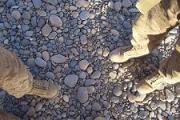Might be more accurate to say that an increased role for local governance should come at the expense of national governance, if it is done correctly. Unfortunately, this creates a situation where the national government is likely to actively oppose the development of effective local governance.
It seems to me that one of our great mistakes in the early stages in Afghanistan was the focus on creating a centralized, top-down government structure... and that we did this not because that kind of structure suited the Afghan populace, but because it suited us. In the process we created a Government that is not accountable to a rather distant citizenry, is primarily interested in self-preservation and personal gain, which cannot govern and is likely to pursue the personal interests of those who govern at the expense of the interests of the governed. Probably not an exaggeration to say we created a bit of a monster, which is more obstacle than asset at this point.
The question is to whom local governance should be accountable - to the local community or to the national government - and to whom they actually are accountable in practice. Realistically, local governance that serves communities is often not going to be in the interests of the central government, who would rather see local governance accountable to them... a very difficult conflict to resolve.
Don't you have to clear before you can shape?Is there anything wrong with the concept of shape-clear-hold? Is that much of the plan about right? Is that a necessary pre-condition for whatever it is that needs to be done?
The theory seems fine as far as it goes, but unless we propose to govern Afghanistan, what do we do after "hold"? We haven't the resources to hold everything, and our natural impulse after clearing will be to move on and clear somewhere else. That's not altogether wrong, but it assumes that there is some entity with the capacity to govern that will come in and govern effectively in the interest of the community... and all too often there isn't.





 :
:

Bookmarks